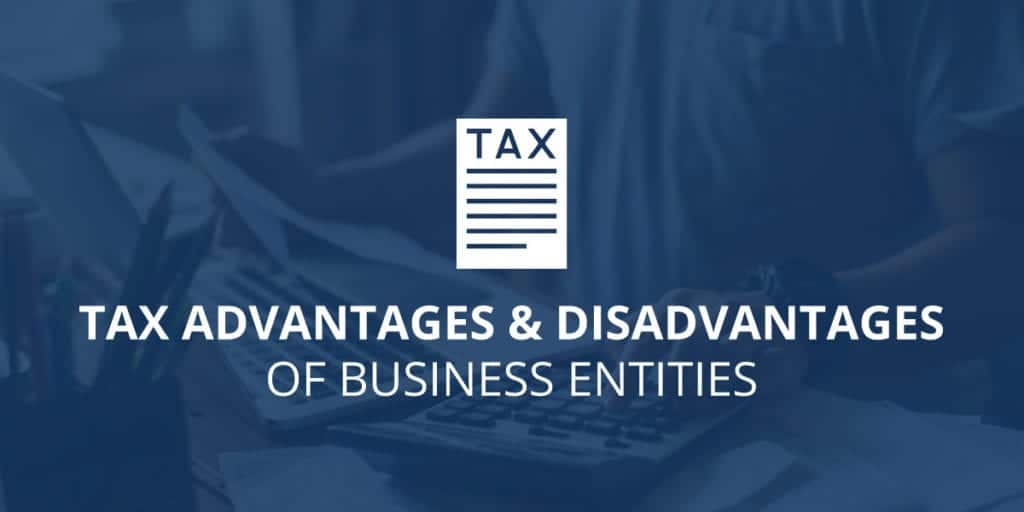
Tax Advantages
Learn more about tax advantages and disadvantages of business entities. When forming a new business or subsidiary, your choice of business entity (and where you form your business entity) can have a number of legal and financial implications. While this includes things like owner liability, management and control rights, and transferability of shares, it also includes potential income tax, property tax and other tax liability.
Entity-Level Taxation vs. Pass-Through Taxation
With regard to income tax, there are two primary forms of taxation: entity-level taxation and pass-through taxation. With entity-level taxation, the business itself pays income tax. With pass-through taxation, the company’s income is imputed to its shareholders or members, who must then report the income (and pay any applicable tax) on their individual returns.
With entity-level taxation, there is the potential for what is commonly referred to as a “double tax”: the company pays tax on its income and it uses its income to pay salaries and distributions to executives and owners – who are then taxed at the individual level. While it may sound like a scenario that should be avoided, there are actually some circumstances in which this “double tax” can result in less overall tax liability for the company and its owners.
By default, corporations are subject to entity-level taxation, and limited liability companies (LLCs) and partnerships receive pass-through tax treatment. However, certain corporations can elect for pass-through tax treatment, and LLCs can elect for corporate tax treatment (and will benefit from corporate tax treatment) in many circumstances as well.
C-Corp vs. S-Corp
Corporations that are subject to entity-level taxation are referred to as “C-corporations,” because they are taxed under subchapter C of the Internal Revenue Code. “S-corporations” are subject to pass-through tax treatment under subchapter S. While corporations (and all other types of business entities) are formed at the state level, electing for S-corporation tax treatment requires submission of Form 2553 to the Internal Revenue Service (IRS). In order to be eligible to file Form 2553, a corporation must:
- Be a domestic corporation in the United States;
- Only have shareholders that are individuals, trusts, or estates (not partnerships or corporations);
- Only have one class of stock; and,
- Have no more than 100 shareholders.
Additionally, certain types of businesses are ineligible to elect for pass-through tax treatment regardless of whether they meet these criteria. This includes certain types of financial institutions, insurance companies, and “domestic international sales corporations.”
Your State vs. Delaware
In addition to choosing the type of entity to form and whether to elect for pass-through or entity-level tax treatment, when starting a business or forming a subsidiary, it is also necessary to decide where to file your organizational documents. Many companies choose Delaware because it does not impose a state income tax on companies that are formed there but conduct business out of state (although Delaware does have a fairly small franchise tax that applies to all companies).
However, just as there are benefits and drawbacks to choosing entity-level or pass-through taxation, there are advantages and disadvantages to forming corporations, partnerships, and LLCs under various states’ laws. Deciding where to file requires a thorough assessment of all pertinent factors (both tax and non-tax related), and different companies will reach different conclusions for different reasons.
Speak with a Southern California Tax Lawyer at RJS Law Firm
RJS Law Firm is a team of highly-experienced tax lawyers who represent private and public companies in all state and federal tax matters. If you would like more information about the tax implications of forming C-corps, S-corps, LLCs, partnerships, and other business entities, we encourage you to call 619-595-1655 or contact us online for a complimentary initial consultation.

Leave a Reply